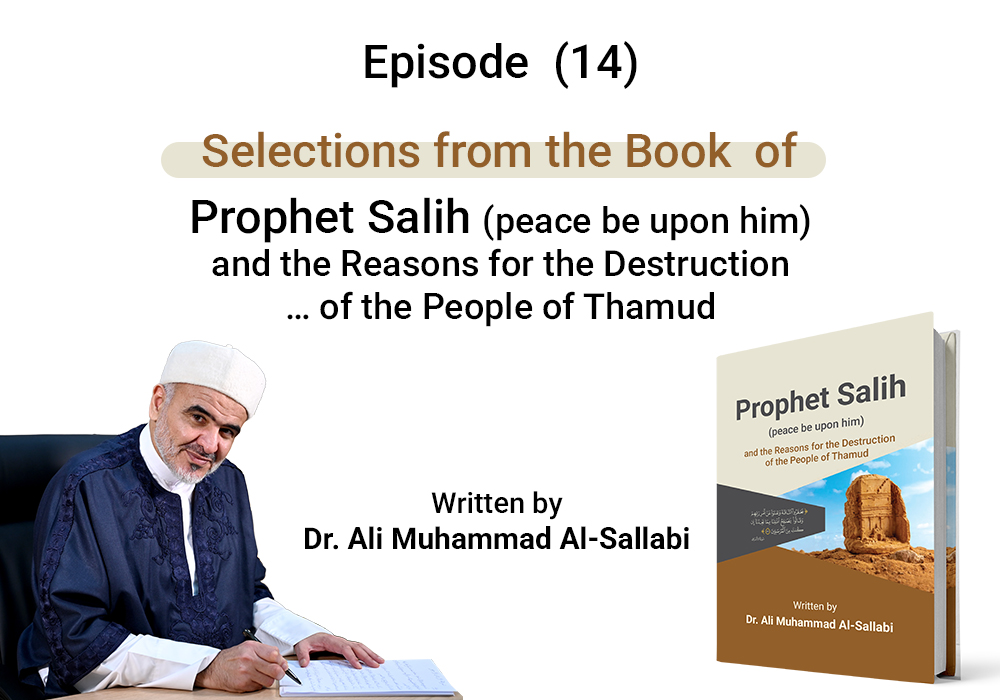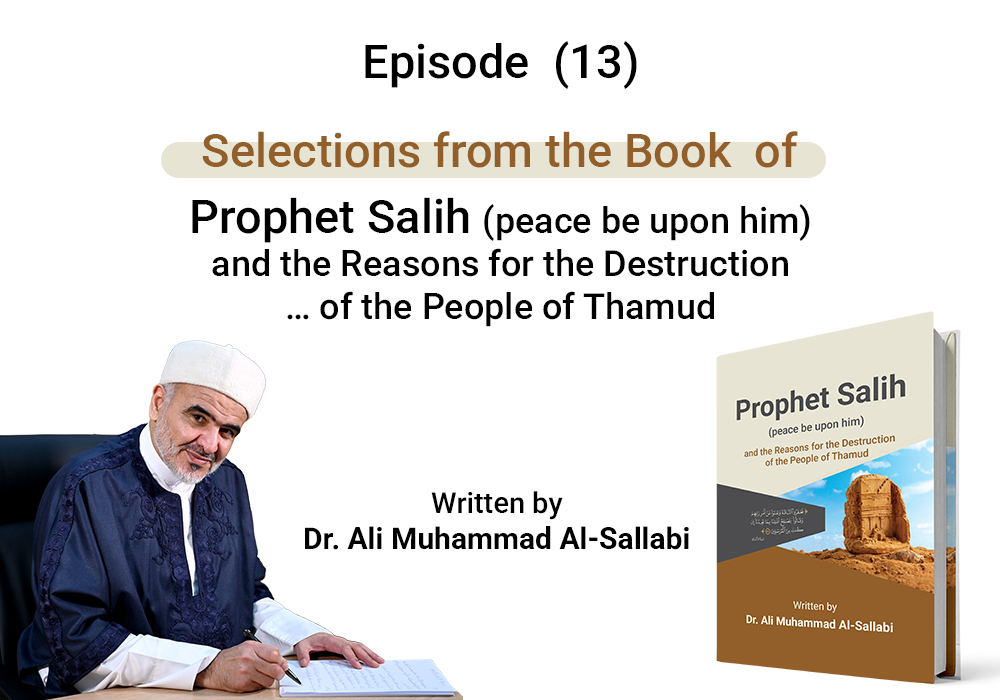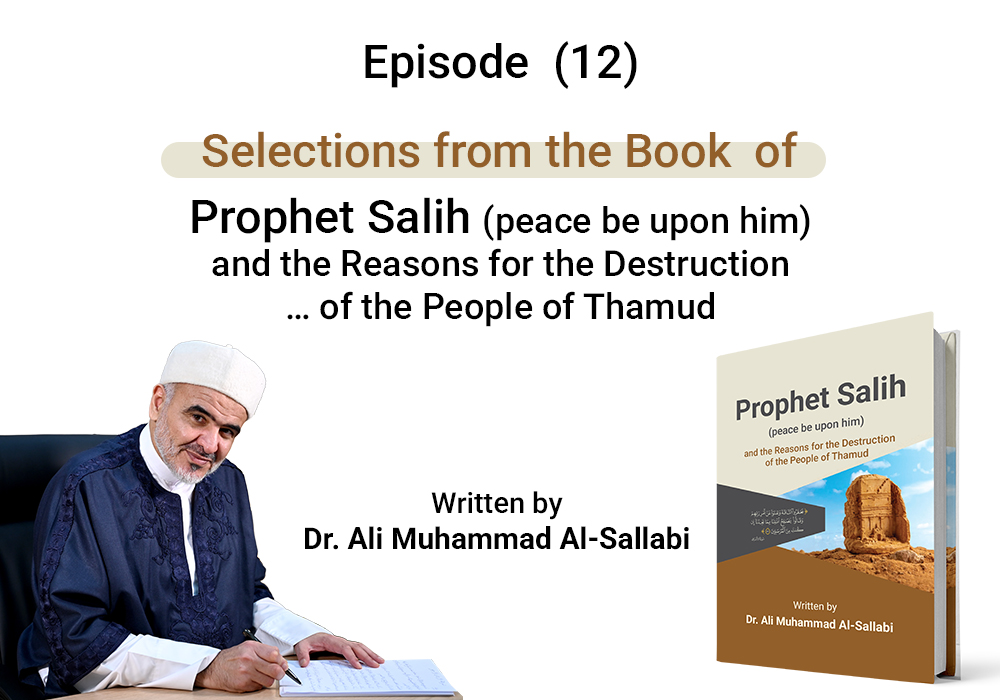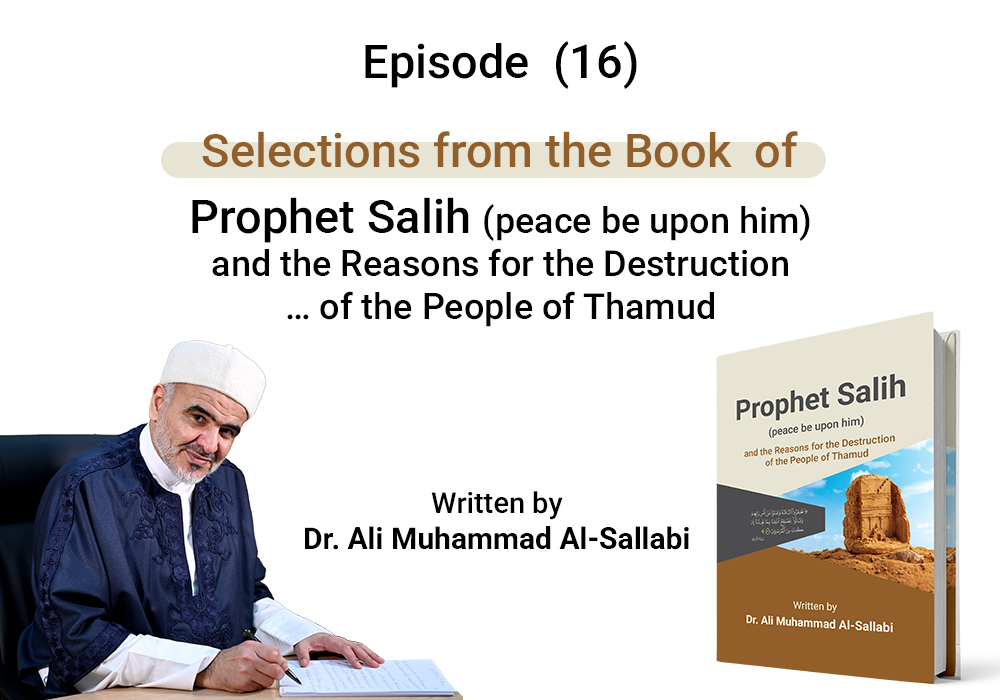The Reasons for the Destruction of the People of Thamud;
Polytheism with Allah
Selections from the Book Prophet Salih (peace be upon him) and the Reasons for the Destruction of the People of Thamud …
Written by Dr. Ali Muhammad al-Sallabi...
Episode (14)
The reasons for the destruction of previous nations are numerous and varied, but the most dangerous and greatest of them all is associating partners with Allah Almighty. Because of this, many nations faced destruction and deserved punishment in this world before the Hereafter, becoming a lesson and admonition for those who came after them.
There are many verses that detail this grave affliction among the doomed nations, how it took root in their hearts, and how they stubbornly and arrogantly clung to it, rejecting and denying the messengers and prophets in their determination to uphold it. The term ''polytheism'' falls under broader concepts that also encompass other sins such as oppression, disbelief, and crime. There are also verses that speak specifically about certain nations or highlight nations whose polytheism and insistence on it were particularly notable, as well as the efforts of their prophets to call them to abandon it. These verses explain the reasons for which those particular nations were destroyed, explicitly mentioning polytheism or referring to it implicitly.
Among these nations was Thamud, which was a polytheistic nation that worshipped idols and denied Allah’s exclusive right to be worshipped—just as the nations before them, like the people of Noah and the people of Hud, had done. The core of Salih’s (peace be upon him) message was to call them to worship Allah alone. This is mentioned in multiple places in the Holy Quran, including the verse that describes their polytheism and idol worship: {They said, "O Salih, you were among us a man of promise before this. Do you forbid us to worship what our fathers worshipped? And indeed we are, about that to which you invite us, in disquieting doubt."} [Hud: 62].
They addressed Salih (peace be upon him) with regret and disappointment, saying, {you were among us a man of promise before this.}; Meaning they had hoped he would be a leader among them, given the signs of wisdom and guidance they had seen in him—until he came with what they deemed an astonishing claim. They questioned whether he was really calling them to abandon idol worship, a practice they had inherited from their forefathers. They then clarified their stance toward his call to monotheism with a sarcastic tone, appearing to be fair and concerned for Salih, saying, {And indeed we are, about that to which you invite us, in disquieting doubt."}.
Fakhr al-Din al-Razi explained that doubt means remaining undecided between affirmation and denial, while "disquieting" refers to something perceived as false. Their statement, {And indeed we are, about that to which you invite us, in disquieting doubt."} [Hud: 62], indicates that they did not find his claim convincing. The word "disquieting" suggests that they were inclined to believe his words were false, which is an exaggeration in discrediting his message.
In the end, Allah decreed the destruction of those polytheists—a fate that befalls all who associate partners with Him and deviate from the path of His messengers. The pillars of Thamud’s polytheism collapsed under the force of the earthquake, the blast, and the thunderbolt, as previously explained.
- Ali Muhammad al-Sallabi, Prophet Salih (peace be upon him) and the Reasons for the Destruction of the People of Thamud, pp. 327-329.
- Reasons for the destruction of previous nations, p. 136.
- Interpretation of Abu Masoud (3/263).
- The reasons for the destruction of previous nations as mentioned in the Quran, Saeed Muhammad Baba Sila, Dar Ibn al-Jawzi, 2000 AD, p. 108.
For further information and review of the sources for the article, see:
The Book of Prophet Salih (peace be upon him) and the Reasons for the Destruction of the People of Thamud on the official website of Sheikh Dr. Ali Muhammad al-Sallabi:






